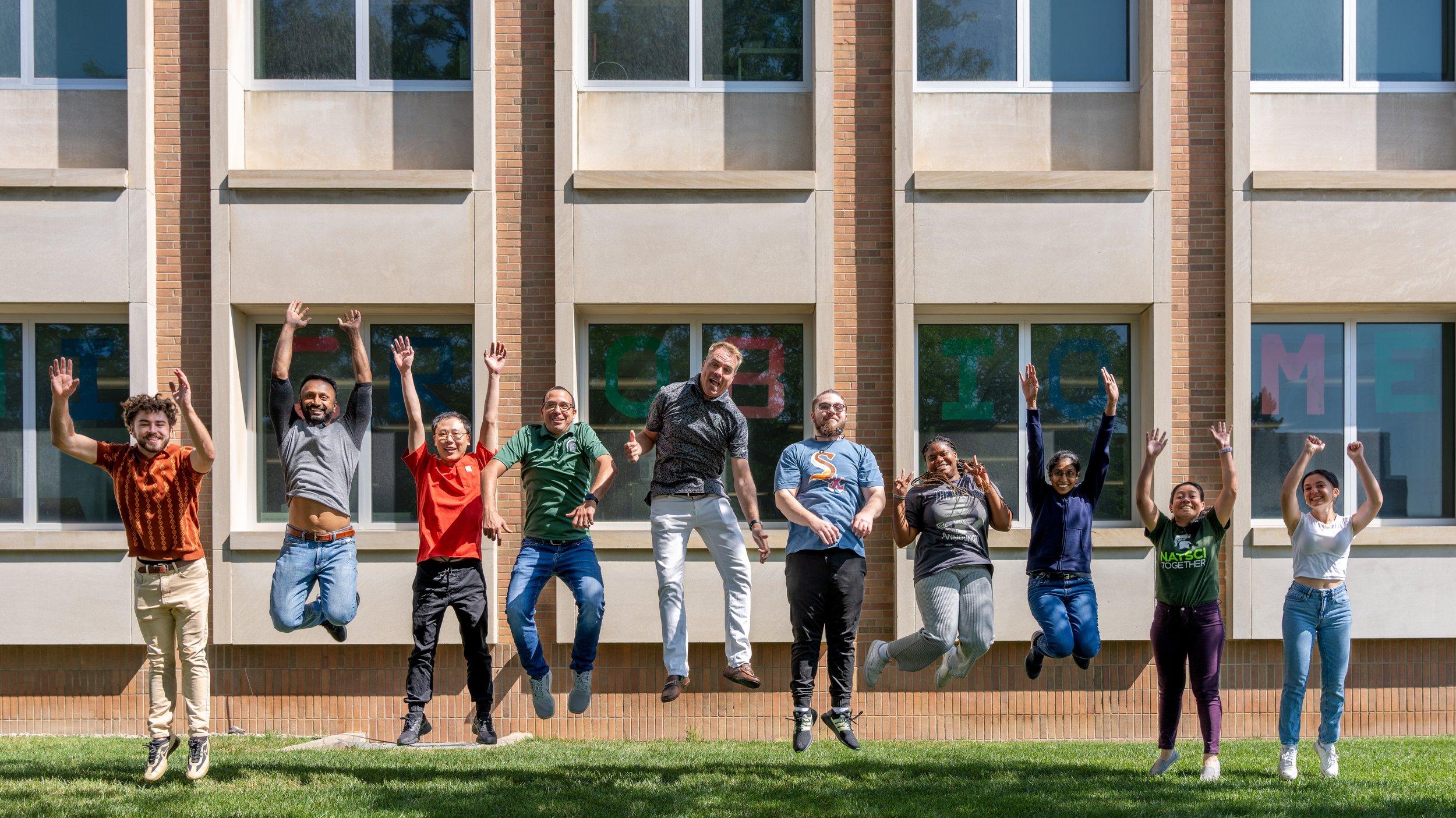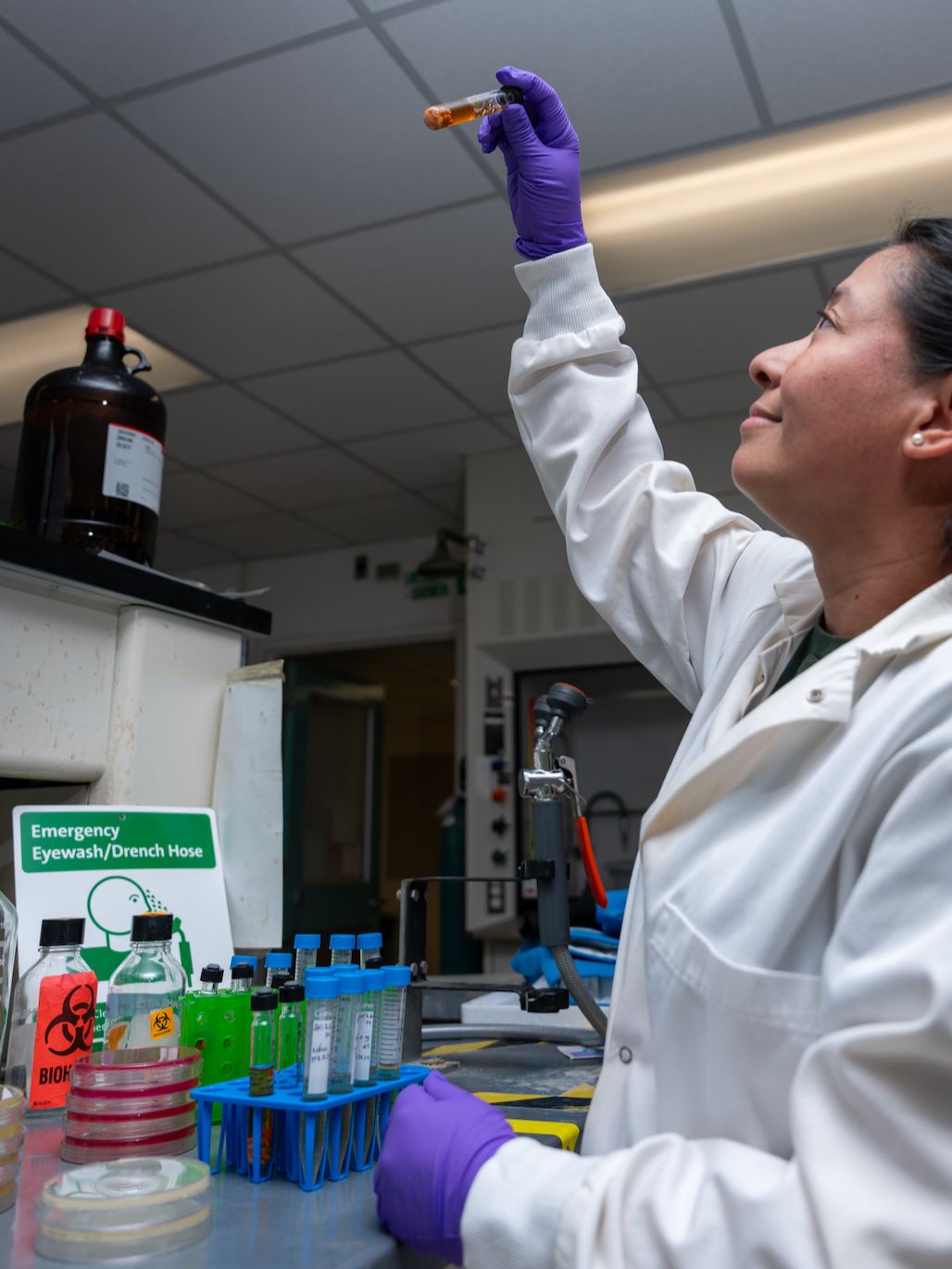Metabolites from the Microbiome During
Health and Disease
The Quinn lab at Michigan State University aims to understand how dynamic microbial communities contribute to health and disease. We use multi-omics methods, such as metagenomics and metabolomics, supported by animal and laboratory models, to peer into various microbiomes and elucidate their function. We focus our research on the cystic fibrosis (CF) lung, human gut, and marine systems. We are particularly interested in characterizing the chemistry of the microbiome. To do this, our laboratory uses advanced mass spectrometry bioinformatic tools to illuminate the ‘dark matter’ in the microbial metabolome.
Promoting diversity
The Quinn lab is devoted to promoting inclusivity and diversity in our scientific and academic environment. We encourage students, postdocs and employees to express their scientific ideas in a safe space that promotes confidence and innovation for all members of the lab. Discrimination and prejudice is not tolerated. We actively promote these principles across the Michigan State campus.









